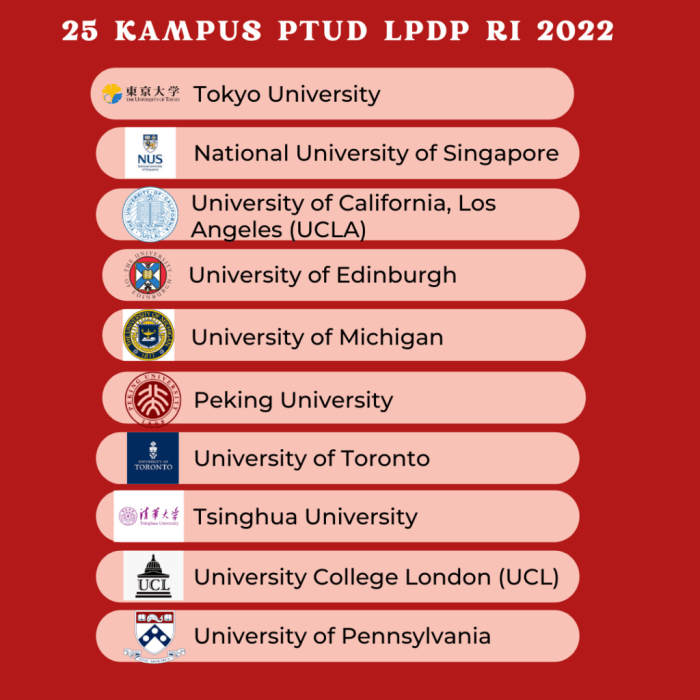Karyawan swasta dalam bahasa inggris – Dunia kerja modern dipenuhi dengan berbagai jenis profesi, dan salah satunya adalah karyawan swasta. “Private employees,” seperti yang disebut dalam bahasa Inggris, merupakan individu yang bekerja untuk perusahaan atau organisasi swasta, bukan pemerintah. Mereka memiliki peran penting dalam mendorong pertumbuhan ekonomi dan inovasi di berbagai sektor.
Dalam panduan ini, kita akan menjelajahi berbagai aspek penting tentang karyawan swasta dalam bahasa Inggris, mulai dari definisi dan hak-hak mereka hingga tantangan yang dihadapi dan tren masa depan. Kita juga akan membahas peran penting mereka dalam ekonomi global dan bagaimana pemerintah mendukung mereka.
Definisi Karyawan Swasta
Karyawan swasta adalah individu yang bekerja untuk perusahaan atau organisasi yang dimiliki dan dioperasikan secara pribadi, bukan oleh pemerintah. Mereka menerima gaji atau upah sebagai imbalan atas pekerjaan mereka, dan biasanya bekerja di bawah kontrak kerja. Karyawan swasta dapat bekerja di berbagai bidang, seperti manufaktur, jasa, perdagangan, dan teknologi.
Contoh Karyawan Swasta
Contoh karyawan swasta adalah seorang programmer yang bekerja untuk perusahaan teknologi, seorang kasir di supermarket, atau seorang guru di sekolah swasta. Karyawan swasta dapat bekerja di berbagai peran dan posisi, tergantung pada industri dan jenis perusahaan tempat mereka bekerja.
Perbedaan Karyawan Swasta dan Karyawan Pemerintah
Karyawan swasta dan karyawan pemerintah memiliki beberapa perbedaan utama. Karyawan swasta bekerja untuk perusahaan swasta, sementara karyawan pemerintah bekerja untuk badan pemerintah. Karyawan swasta biasanya memiliki lebih banyak fleksibilitas dalam hal kondisi kerja dan kesempatan promosi, sementara karyawan pemerintah memiliki lebih banyak stabilitas kerja dan manfaat pensiun.
- Karyawan swasta bekerja untuk perusahaan yang dimiliki dan dioperasikan secara pribadi, sementara karyawan pemerintah bekerja untuk badan pemerintah.
- Karyawan swasta biasanya memiliki lebih banyak fleksibilitas dalam hal kondisi kerja dan kesempatan promosi, sementara karyawan pemerintah memiliki lebih banyak stabilitas kerja dan manfaat pensiun.
- Karyawan swasta biasanya menerima gaji atau upah yang ditentukan oleh perusahaan tempat mereka bekerja, sementara karyawan pemerintah biasanya menerima gaji atau upah yang ditentukan oleh badan pemerintah.
Rights and Obligations of Private Sector Employees
Working in the private sector comes with a set of rights and obligations that both employees and employers need to understand. This understanding is crucial for a harmonious and productive working environment. Let’s delve into the key aspects of these rights and obligations.
Employee Rights
Private sector employees in Indonesia are entitled to certain fundamental rights that ensure their well-being and fair treatment. These rights are protected by law and aim to create a balanced and just working environment.
- Right to a Fair Wage: Employees have the right to receive a fair wage for their work, which should be at least the minimum wage set by the government. This wage should be paid on time and in full, without any deductions unless legally permitted.
- Right to Safe Working Conditions: Employers have a responsibility to provide a safe and healthy working environment for their employees. This includes providing proper safety equipment, training, and procedures to prevent accidents and illnesses.
- Right to Paid Leave: Employees are entitled to paid leave, including annual leave, sick leave, and maternity/paternity leave. These leave benefits allow employees to take time off for personal reasons without jeopardizing their income.
- Right to Freedom of Association: Employees have the right to join unions or other employee organizations to advocate for their interests and improve their working conditions.
- Right to Non-discrimination: Employees have the right to be treated fairly and equally, without discrimination based on race, religion, gender, or any other protected characteristic.
Employee Obligations
Alongside their rights, employees also have certain obligations towards their employers and the workplace. These obligations are essential for maintaining a productive and respectful working environment.
- Obligation to Perform Work Duties: Employees are obligated to perform their assigned work duties to the best of their abilities, following company policies and procedures. This includes being punctual, maintaining professionalism, and completing tasks within deadlines.
- Obligation to Maintain Confidentiality: Employees are expected to maintain confidentiality regarding company information, including trade secrets, customer data, and internal communications. This is crucial for protecting the company’s interests.
- Obligation to Uphold Ethical Conduct: Employees are expected to behave ethically and responsibly, adhering to company values and legal regulations. This includes avoiding conflicts of interest, engaging in honest business practices, and respecting colleagues and clients.
- Obligation to Cooperate with Management: Employees are obligated to cooperate with management and follow their instructions, as long as they are reasonable and lawful. This includes participating in training programs, complying with safety regulations, and providing feedback when requested.
- Obligation to Respect Company Property: Employees are responsible for respecting company property, including equipment, facilities, and resources. This involves using them appropriately, avoiding damage, and reporting any issues promptly.
Rights and Obligations Relationship
The rights and obligations of employees are interconnected and form the basis of a balanced and fair working relationship. Understanding this relationship is crucial for both employees and employers to fulfill their respective roles and responsibilities.
| Employee Rights | Employee Obligations |
|---|---|
| Right to a Fair Wage | Obligation to Perform Work Duties |
| Right to Safe Working Conditions | Obligation to Uphold Ethical Conduct |
| Right to Paid Leave | Obligation to Maintain Confidentiality |
| Right to Freedom of Association | Obligation to Respect Company Property |
| Right to Non-discrimination | Obligation to Cooperate with Management |
Challenges Faced by Private Sector Employees
Private sector employees face a unique set of challenges that can vary depending on their industry, location, and role. These challenges are often influenced by global economic trends, technological advancements, and evolving workplace dynamics. This article will explore some of the key challenges faced by private sector employees in the contemporary world.
Challenges Faced by Private Sector Employees
Private sector employees across the globe encounter various challenges, ranging from job security and work-life balance to skills gaps and the ever-evolving nature of work. Here are some common challenges:
- Job Security: In a competitive market, job security is a major concern for many private sector employees. Economic downturns, industry shifts, and automation can lead to layoffs or reduced work hours.
- Work-Life Balance: The demands of the modern workplace, including long hours, remote work, and constant connectivity, can make it difficult for employees to maintain a healthy work-life balance.
- Skills Gaps: Rapid technological advancements are creating skills gaps in the workforce. Employees need to continuously upskill and adapt to remain competitive in the job market.
- Stress and Burnout: High-pressure work environments, demanding deadlines, and constant performance expectations can lead to stress, burnout, and mental health issues.
- Compensation and Benefits: Employees may face challenges in negotiating competitive salaries, benefits packages, and opportunities for advancement.
Examples of Specific Challenges in Different Sectors, Karyawan swasta dalam bahasa inggris
The specific challenges faced by private sector employees can vary significantly across different industries. Here are some examples:
- Technology Sector: Employees in the technology sector often face intense competition, rapid innovation cycles, and the need to constantly adapt to new technologies. They may also experience long work hours and pressure to deliver results quickly.
- Healthcare Sector: Healthcare professionals face challenges related to patient care, staffing shortages, increasing administrative burdens, and the need to stay current with medical advancements.
- Manufacturing Sector: Employees in the manufacturing sector may face challenges related to automation, job displacement, and the need to adapt to new manufacturing processes.
- Retail Sector: Retail employees may face challenges related to customer service, fluctuating work schedules, and the need to adapt to changing consumer preferences.
The Impact of Technology on Challenges
Technology has a significant impact on the challenges faced by private sector employees. While it can create new opportunities and improve efficiency, it can also exacerbate existing challenges.
- Automation: Automation is replacing some jobs, leading to concerns about job security and the need for employees to acquire new skills.
- Remote Work: While remote work offers flexibility, it can also lead to isolation, blurred boundaries between work and personal life, and challenges with communication and collaboration.
- Data Privacy and Security: The increasing reliance on technology raises concerns about data privacy and security, which can impact employee trust and job satisfaction.
The Role of Private Sector Employees in the Economy
Private sector employees play a crucial role in driving economic growth and prosperity. They are the backbone of businesses, contributing to the production of goods and services, creating jobs, and generating revenue. This essay will delve into the multifaceted contributions of private sector employees to the economy, exploring their impact on national income, positive and negative effects, and the importance of their role in fostering a dynamic and competitive market.
Contributions to National Income
Private sector employees contribute significantly to national income through their wages, salaries, and taxes. The wages and salaries they earn represent a substantial portion of household income, driving consumer spending and stimulating economic activity. Furthermore, the taxes they pay contribute to government revenue, which is used to fund public services and infrastructure, further boosting economic growth.
- Wages and Salaries: Private sector employees receive wages and salaries for their labor, which they then spend on goods and services, contributing to aggregate demand.
- Taxes: Employees pay taxes on their income, which is used by the government to finance public services like healthcare, education, and infrastructure, ultimately benefiting the economy.
- Investment: Employees’ savings can be channeled into investments, further stimulating economic growth and creating new opportunities.
Positive Impacts on the Economy
The role of private sector employees in the economy has a number of positive impacts. These include:
- Economic Growth: By contributing to production and generating revenue, private sector employees drive economic growth and expansion.
- Job Creation: The creation of new businesses and the expansion of existing ones often leads to increased job opportunities, reducing unemployment and promoting economic stability.
- Innovation: Private sector employees are often at the forefront of innovation, developing new products and services that improve productivity and enhance consumer well-being.
- Competition: The presence of a large private sector fosters competition, which leads to lower prices, higher quality goods and services, and increased efficiency.
Negative Impacts on the Economy
While the private sector plays a vital role in economic growth, there are also some potential negative impacts associated with the role of private sector employees. These include:
- Income Inequality: The gap between the highest earners and the lowest earners in the private sector can contribute to income inequality, potentially leading to social and economic instability.
- Job Insecurity: The private sector can be subject to economic fluctuations, which can lead to job losses and insecurity for employees.
- Environmental Degradation: Some industries in the private sector may have negative environmental impacts, contributing to pollution and resource depletion.
The Future of Freelance Workers
The freelance workforce is growing rapidly, and it’s clear that this trend will continue in the future. This growth is being driven by a number of factors, including the rise of the gig economy, the increasing demand for specialized skills, and the desire for greater flexibility and work-life balance. As a result, it’s important to understand the key trends that will shape the future of freelance work.
Key Trends Shaping the Future of Freelance Work
Several key trends are shaping the future of freelance work. These trends will have a significant impact on how freelancers work, the types of jobs they do, and the tools and resources they use.
- The Rise of the Gig Economy: The gig economy is a major driver of the growth of the freelance workforce. This is due to the increasing availability of online platforms that connect freelancers with clients. These platforms make it easier for freelancers to find work, manage projects, and get paid.
- The Demand for Specialized Skills: As businesses become more specialized, they are increasingly looking for freelancers with specific skills and expertise. This means that freelancers who can demonstrate their expertise in a particular area will be in high demand.
- The Growing Importance of Technology: Technology is playing a crucial role in shaping the future of freelance work. Freelancers are using a variety of tools and technologies to manage their businesses, communicate with clients, and deliver their services.
- The Increasing Importance of Work-Life Balance: Freelancers are increasingly seeking work-life balance. This means that they are looking for jobs that offer flexibility and allow them to work from anywhere. As a result, businesses are increasingly offering remote work opportunities to attract and retain freelance talent.
How Technology Will Transform Freelance Work
Technology is already having a significant impact on freelance work, and this impact will only grow in the future. Here are some ways technology will transform freelance work in the years to come:
- Artificial Intelligence (AI): AI is already being used to automate tasks, and this trend will only continue in the future. AI-powered tools can help freelancers with tasks such as scheduling, project management, and even writing. This will allow freelancers to focus on more strategic and creative work.
- Virtual Reality (VR) and Augmented Reality (AR): VR and AR technologies are creating new opportunities for freelancers. For example, VR can be used to create immersive training simulations, while AR can be used to enhance customer service interactions. Freelancers with skills in these areas will be in high demand.
- Blockchain Technology: Blockchain technology is creating new ways for freelancers to get paid and manage their finances. Blockchain-based platforms can provide secure and transparent payment systems, as well as tools for managing contracts and intellectual property.
The Evolution of Freelance Roles
The roles of freelancers are evolving as the nature of work changes. Here are some scenarios of how freelance roles might evolve in the coming decades:
- AI-Powered Freelance Assistants: In the future, freelancers may work alongside AI-powered assistants that can help them with tasks such as research, data analysis, and content creation. This will allow freelancers to focus on higher-level tasks and deliver more value to their clients.
- Freelance Specialists in Emerging Technologies: As new technologies emerge, freelancers will be needed to develop and implement these technologies. This could include roles such as VR developers, AR designers, and blockchain experts.
- Freelance Entrepreneurs: Freelancers may increasingly start their own businesses, leveraging their skills and experience to create new products and services. This could lead to a rise in freelance-led startups and businesses.
7 Tips to Become a Successful Private Employee
The private sector is a dynamic and competitive landscape. Whether you’re a seasoned professional or just starting your career, standing out and achieving success requires a strategic approach and a dedication to continuous improvement. Here are seven practical tips to help you thrive in your private sector role and achieve your career goals.
Master Essential Skills
The private sector demands a diverse skillset. While technical proficiency in your field is crucial, developing a range of soft skills is equally important for career advancement.
- Communication: Effective communication is vital for collaboration, building relationships, and conveying your ideas clearly. Practice active listening, clear articulation, and persuasive writing.
- Problem-Solving: The ability to identify and solve problems efficiently is highly valued in the private sector. Develop your analytical skills, critical thinking, and creative problem-solving techniques.
- Adaptability: The private sector is constantly evolving. Embrace change, be open to new ideas, and demonstrate a willingness to learn and adapt to new technologies and processes.
- Teamwork: Collaboration is key to success in most private sector roles. Develop your ability to work effectively with others, contribute to team goals, and foster a positive and productive work environment.
Cultivate Key Qualities
Beyond skills, certain qualities are essential for private sector success.
- Proactivity: Take initiative, anticipate challenges, and propose solutions. Don’t wait for instructions; demonstrate a proactive approach to your work.
- Accountability: Take ownership of your responsibilities and be accountable for your actions. Be transparent, reliable, and committed to delivering results.
- Resilience: The private sector can be demanding. Develop your ability to bounce back from setbacks, learn from mistakes, and maintain a positive attitude even under pressure.
- Continuous Learning: The private sector rewards those who are always learning and growing. Stay current with industry trends, seek out new knowledge, and pursue professional development opportunities.
Seek Professional Development Opportunities
Continuous learning is crucial for staying ahead in the private sector. Explore these resources and opportunities to enhance your skills and knowledge.
- Online Courses: Platforms like Coursera, Udemy, and edX offer a wide range of courses on various topics, from technical skills to soft skills and industry-specific knowledge.
- Professional Certifications: Earning industry-recognized certifications can demonstrate your expertise and enhance your career prospects. Research certifications relevant to your field and pursue those that align with your career goals.
- Conferences and Workshops: Attending industry events allows you to network with peers, learn from experts, and stay updated on the latest trends and technologies.
- Mentorship Programs: Connect with experienced professionals in your field who can provide guidance, support, and insights into career development. Many companies and professional organizations offer mentorship programs.
Contoh Kasus Karyawan Swasta
The world of private sector employees is filled with inspiring stories of individuals who have achieved remarkable success. These stories often serve as a testament to the power of hard work, dedication, and strategic thinking. Let’s delve into a real-life example of a private sector employee who rose through the ranks and made a significant impact on their company.
Case Study: Sarah, the Marketing Strategist
Sarah, a young marketing professional, joined a small startup company as a junior marketing executive. Initially, she was responsible for managing social media accounts and creating basic marketing materials. However, Sarah possessed a keen eye for detail, a strategic mindset, and a passion for understanding customer behavior.
Sarah’s Strategic Approach
Sarah’s success can be attributed to a combination of factors. First, she took initiative and proactively sought opportunities to learn and grow. She attended industry conferences, read marketing blogs, and took online courses to expand her knowledge and skills. Second, Sarah was a strong communicator and collaborator. She worked closely with colleagues in other departments to understand their needs and develop marketing campaigns that aligned with the company’s overall goals.
- Data-Driven Decision Making: Sarah embraced data analytics to understand customer preferences and track the effectiveness of marketing campaigns. She used this data to refine her strategies and optimize campaign performance.
- Creative Storytelling: Sarah understood the importance of engaging storytelling in marketing. She developed compelling narratives that resonated with target audiences and highlighted the value proposition of the company’s products or services.
- Building Relationships: Sarah cultivated strong relationships with key stakeholders, including customers, media outlets, and industry influencers. These relationships helped her to generate positive publicity and build brand awareness.
Lessons Learned
Sarah’s story offers valuable lessons for private sector employees. It emphasizes the importance of:
- Continuous Learning: The private sector is constantly evolving, so it’s essential to stay up-to-date with the latest trends and technologies. Embrace opportunities to learn and grow your skillset.
- Strategic Thinking: Develop a strategic mindset and think beyond your immediate tasks. Look for opportunities to contribute to the company’s overall success.
- Collaboration and Communication: Effective communication and collaboration are crucial for success in any organization. Build strong relationships with colleagues and stakeholders.
- Passion and Purpose: Find a career that you’re passionate about and that aligns with your values. This passion will fuel your motivation and drive you to excel.
Peran Pemerintah dalam Mendukung Karyawan Swasta
.png?w=700)
Pemerintah memegang peran penting dalam menciptakan lingkungan yang mendukung bagi karyawan swasta. Lingkungan yang kondusif dan kebijakan yang tepat dapat meningkatkan kesejahteraan karyawan swasta, mendorong pertumbuhan ekonomi, dan menciptakan lapangan kerja baru. Pemerintah memiliki berbagai cara untuk mendukung karyawan swasta, baik melalui kebijakan langsung maupun tidak langsung.
Kebijakan dan Program Pemerintah untuk Meningkatkan Kesejahteraan Karyawan Swasta
Pemerintah telah menerapkan berbagai kebijakan dan program untuk meningkatkan kesejahteraan karyawan swasta. Beberapa contohnya adalah:
- Upah Minimum Regional (UMR): UMR ditetapkan untuk memastikan karyawan swasta mendapatkan penghasilan minimal yang layak. UMR secara berkala dievaluasi dan disesuaikan dengan kondisi ekonomi dan inflasi.
- Jaminan Sosial: Program jaminan sosial seperti BPJS Kesehatan dan BPJS Ketenagakerjaan memberikan perlindungan bagi karyawan swasta terhadap risiko kesehatan, kecelakaan kerja, dan kehilangan pekerjaan.
- Peningkatan Keterampilan: Pemerintah menyediakan program pelatihan dan pendidikan vokasi untuk meningkatkan keterampilan karyawan swasta, sehingga mereka lebih siap menghadapi persaingan di pasar kerja.
- Insentif Pajak: Pemerintah memberikan insentif pajak kepada perusahaan yang mempekerjakan karyawan swasta, khususnya bagi perusahaan yang berinvestasi di bidang tertentu seperti teknologi atau sektor yang padat karya.
Tantangan dan Peluang dalam Peran Pemerintah
Meskipun telah banyak upaya yang dilakukan, masih ada beberapa tantangan dalam peran pemerintah dalam mendukung karyawan swasta. Beberapa di antaranya adalah:
- Pengembangan Infrastruktur: Ketersediaan infrastruktur yang memadai, seperti jalan, transportasi umum, dan akses internet, sangat penting untuk mendukung kegiatan ekonomi dan meningkatkan kesejahteraan karyawan swasta.
- Penciptaan Lapangan Kerja: Pemerintah perlu mendorong pertumbuhan ekonomi dan menciptakan lapangan kerja baru, khususnya di sektor yang memiliki potensi tinggi untuk menyerap tenaga kerja.
- Efektivitas Program: Program pemerintah harus dirancang dengan baik dan dievaluasi secara berkala untuk memastikan efektivitas dan manfaatnya bagi karyawan swasta.
Di sisi lain, terdapat beberapa peluang dalam peran pemerintah untuk mendukung karyawan swasta, yaitu:
- Pemanfaatan Teknologi: Pemerintah dapat memanfaatkan teknologi untuk meningkatkan efisiensi dan efektivitas program, seperti sistem informasi online untuk mengakses data dan informasi tentang program jaminan sosial.
- Kerjasama dengan Sektor Swasta: Pemerintah dapat bekerja sama dengan sektor swasta untuk mengembangkan program pelatihan dan pendidikan yang relevan dengan kebutuhan pasar kerja.
- Promosi Kewirausahaan: Pemerintah dapat mendorong dan memfasilitasi pertumbuhan usaha mikro, kecil, dan menengah (UMKM) untuk menciptakan lapangan kerja baru dan meningkatkan kesejahteraan karyawan swasta.
The Importance of Professional Development for Private Sector Employees

Professional development is crucial for private sector employees, enabling them to stay relevant in a rapidly evolving business landscape. It helps employees enhance their skills, knowledge, and abilities, allowing them to contribute effectively to their organizations and advance their careers.
Types of Professional Development Programs
There are various professional development programs available to private sector employees, catering to different needs and career stages. These programs can be broadly categorized into:
- Technical Skills Training: These programs focus on improving specific technical skills required for a particular job or industry. Examples include software training, data analysis workshops, and coding bootcamps.
- Leadership Development Programs: These programs aim to equip employees with the skills and knowledge needed to lead effectively, such as communication, delegation, and team building.
- Management Training: These programs provide employees with the skills and knowledge needed to manage teams, projects, and resources effectively.
- Soft Skills Development: These programs focus on developing essential soft skills such as communication, teamwork, problem-solving, and critical thinking.
Resources for Professional Development
Employees can access professional development resources through various channels, including:
- Employer-Sponsored Programs: Many employers offer training programs, workshops, and conferences to their employees. These programs are often tailored to the specific needs of the organization and industry.
- Online Learning Platforms: Online platforms like Coursera, Udemy, and edX offer a wide range of courses and certifications in various fields. These platforms offer flexibility and affordability, allowing employees to learn at their own pace.
- Professional Associations: Industry-specific professional associations often provide training, conferences, and networking opportunities for their members.
- Mentorship Programs: Mentorship programs connect experienced professionals with junior employees, providing guidance, support, and career advice.
Benefits of Professional Development
Participating in professional development programs offers numerous benefits to private sector employees, including:
- Enhanced Skills and Knowledge: Professional development programs equip employees with the latest skills and knowledge, making them more valuable to their organizations.
- Increased Job Security: By acquiring new skills and knowledge, employees become more adaptable to changing job requirements and industry trends, increasing their job security.
- Career Advancement Opportunities: Professional development programs can open up new career opportunities, allowing employees to advance within their organizations or explore new roles.
- Improved Performance: Enhanced skills and knowledge contribute to improved job performance, leading to greater productivity and efficiency.
- Increased Confidence and Motivation: Professional development programs can boost employee confidence and motivation, leading to greater engagement and satisfaction in their work.
Kesimpulan: Karyawan Swasta Dalam Bahasa Inggris

Memahami karyawan swasta dalam bahasa Inggris merupakan langkah penting untuk membangun pemahaman yang lebih luas tentang dunia kerja modern. Dengan memahami hak-hak, kewajiban, dan tantangan mereka, kita dapat menciptakan lingkungan kerja yang lebih baik dan mendukung pertumbuhan ekonomi yang berkelanjutan. Peran karyawan swasta dalam ekonomi global tidak dapat diabaikan, dan dengan terus mengikuti tren dan perkembangan, kita dapat membantu mereka meraih kesuksesan dalam karir mereka.







